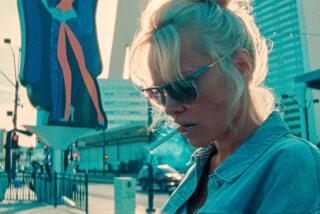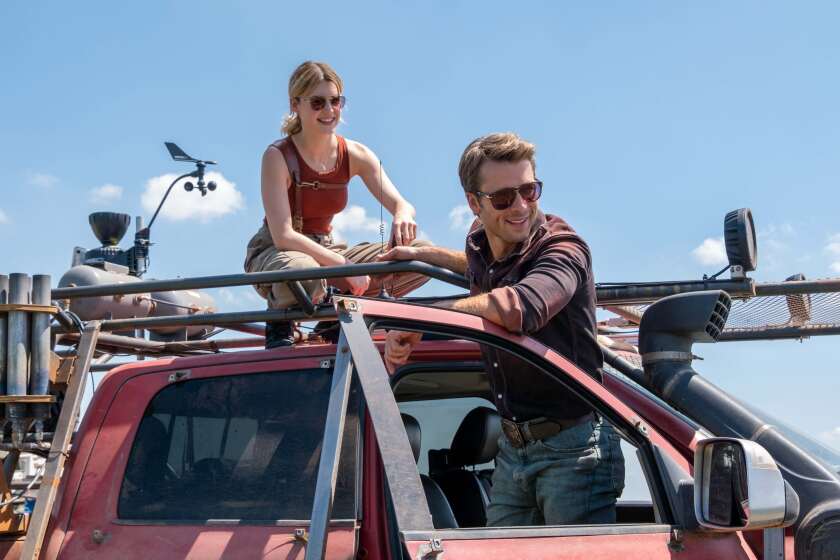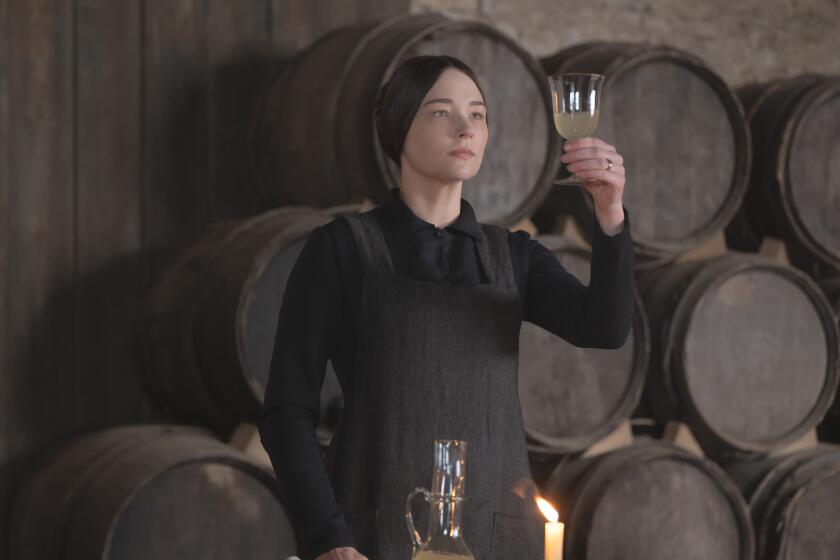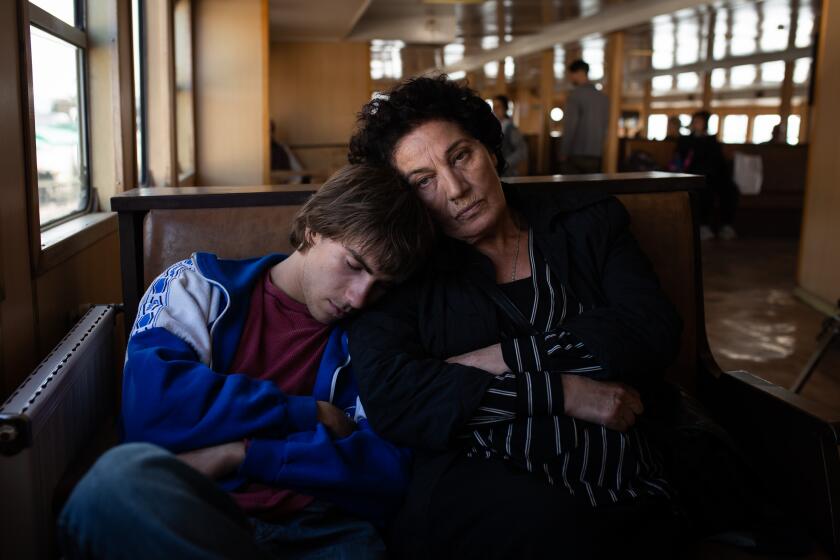A hit or a miss at the movies? It’s in the stars
Louis B. Mayer used to brag that MGM, the studio he led through its golden age, boasted “more stars than there are in heaven.”
In those days, that was something: Stars counted. Garbo, Gable, Garland, just to cover the Gs.
Today, it’s said, the only thing a star is good for is to get you a table in a crowded restaurant.
And it’s true, stars can’t really open films the way they used to; people respond more to Internet buzz, TV ads, movie crit -- er, no, Roger Ebert.
But, still, stars can matter, and there’s a skill to using them to carry a movie. This lesson came home to roost recently with the opening of two movies meant to be driven by stars: “Inside Man,” with three of the biggest, Denzel Washington, Clive Owen and Jodie Foster; and “Basic Instinct 2,” with someone who used to be one of the biggest, Sharon Stone.
What the two movies demonstrate is that, if carefully tended, thoughtfully managed and brilliantly used, stars can still make a movie work as an almost dizzyingly proficient entertainment. If mishandled, they throw the project out of whack so that it putters along like a toy car with a wheel missing.
The old moviemakers understood this, and there were certain rules, never codified or acknowledged, that were built into the DNA of big studio movies. For example, stars never explained; explaining was for character actors. Stars never flinched or ducked on-screen. The best take of the star went into the picture, no matter how bad the lesser performers were.
Whether it was director Spike Lee or screenwriter Russell Gewirtz who truly auteured “Inside Man,” it had a shrewd understanding of the star principle. For example, note that although each member of the film’s star trio in some sense fights for control of the picture, he or she never fights for control of the immediate environment. As the movie is organized, each is the head of a small independent unit -- one a police negotiator, one a masked bank robber, one a slick power broker -- and the absolute master of that world, for whom the deference of others is a fact of life.
The movie is arranged almost like a jousting match, and part of the film’s pleasure comes from anticipating the relatively few moments when they will leave their safe environs and clash head-on with one of the others. Yet the movie is wittily structured so that those fights, as much fun as they are, are always draws. Stars don’t lose; just ask Louis B. Mayer.
Then there’s beauty. It’s not that stars are more beautiful than other people; it’s that each of them has a unique quality that the camera alone can capture. I once saw Kelly McGillis, then at the height of her “Top Gun” celebrity, walk unrecognized through a Washington restaurant, and when she sat down, I still didn’t recognize her. Without a lens to subtly reorganize her features with the aid of the lighting, she was still quite beautiful, but in no way as striking as she was on-screen.
So it is with Washington, Owen and Foster. Although each is beautiful, it’s not really their beauty upon which the camera feasts; it’s some (admittedly stereotypical) essence of character. Washington is the nobility of the African American; Owen is the intellectual superiority of the European; Foster is a kind of sexually ambivalent avatar of piercing female intelligence, not luscious or adorable, but deeply admirable. It’s our love of these hidden archetypes that compels our identification with the characters they play, regardless of which side of which line they are on.
So too it is with Sharon Stone. She is a beautiful woman, and apparently her surgeons were the best in the business; she looks great, she carries herself great, she has enough radiance to melt the camera, but at the same time she projects, through her hard angularity, a predatory nature. She’s not sex as candy; she’s sex as death.
And, oh boy, does she need someone to hold to balance the other side of the screen. Stars need other stars; in sports, rivalries define athletes, and on the screen, drama defines stars. You need that conflict.
Poor David Morrissey, overmatched against her beauty and cunning in the complex plot. It is not that Morrissey is a bad actor; he’s quite good. Nor is it that he’s not a handsome man; he’s an extremely attractive man, and the director contrives to strip him down at one point to reveal a body honed to near perfection.
He is quite a splendid professional. He’s just not a star. Stone needs a star, someone with a long train of associations and accumulated memories off of which to play. Our memories of her in the first “Basic Instinct” are almost iconographic, with the killer blue eyes, the unfolding chaise-longue language of her legs, the way she had of sitting and always being in control of what she revealed, knowing exactly the effect it had on her audience, and deeply enjoying the power it gave her. She was truly She Who Must Be Obeyed.
Against this force of nature, Morrissey is helplessly lost. He’s swallowed up. In fact, a Clive Owen in the role might have turned the movie into the hit, the fabulous pop concoction that it so aspires but so fails to be. Chemistry needn’t be positive: It can also be the power of repulsion, and to watch an Owen, hot young Brit star on the make, and a Stone, hot old Yank star still on the make, would have been a clash of the titans.
As it is, the movie feels profoundly miswired, misshapen even. Stone’s energy goes nowhere.
More to Read
Only good movies
Get the Indie Focus newsletter, Mark Olsen's weekly guide to the world of cinema.
You may occasionally receive promotional content from the Los Angeles Times.






